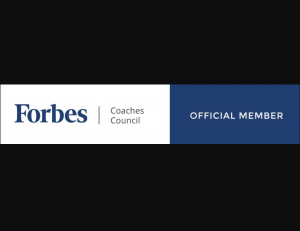You’ve heard it time and time again, “Keep your resume concise.” Whoever told you that was on to something, as it’s one of our resume basics. It’s tempting to want to add every single job duty you’ve ever had because you hope to set yourself apart from the others. It’s kind of like being that girl at the party who went a little too far with the glitter. After a certain point, it’s no longer attractive and you spend most of your evening trying to avoid getting it stuck on you.
Don’t be THAT person.
The bottom line is that the age of Applicant Tracking Systems (ATS) is here and it ain’t going anywhere. Any extra information may actually hurt your chances of landing that interview.
To make it past the ATS firewall, you need to include relevant keywords from the job posting, a simple resume format, and relevant contact information. Once you get the interview, you’ll have your time to shine, share and elaborate on important details.
Remember it isn’t about you, it’s about you getting their attention. Check out this list of resume basics, the “Do Nots,” to help keep your resume clean, concise and easy to read:
Resume Basics #1: DO NOT USE GENERIC JARGON
Generic keywords or any fluffy terms (ex. team player, excellent communicator, driven, motivated) are WAY overused by the general population. If you want the recruiters to roll their eyes at your resume, go for it. But we seriously doubt this is your intention.
To differentiate yourself from the masses, use specific hard skills found in the job description in your resume copy.
Resume Basics #2: DO NOT TRY TO TRICK THE ATS
Including skills you don’t actually have in an attempt to fool the ATS check algorithm will bite you later in the interview or worse if you end up getting hired. The interview is your and the hiring manager’s opportunity to substantiate your ability to do the job.
It’s better to cite skill sets that are transferable to the kind of work being requested than to try operating under a pretense.
For a comprehensive ATS check of your resume, we strongly recommend Jobscan.
Resume Basics #3: DO NOT SEND WITHOUT CHECKING YOUR WORK
Typos and grammatical mistakes communicate more about you than merely how well you did in English class. It shows your attention to detail, but it also shows your reliability and credibility. Are you someone who strives for excellence or someone who settles for easy solutions? Are you someone who will establish great rapport with the customers or are you someone who they’ll have to clean up after?
Resume Basics #4: DO NOT WRITE AN OBJECTIVE SECTION
A long time ago, “Objective” sections at the top of resumes were totally appropriate and expected. The landscape, however, has changed over the last 10 years. Hiring managers know what kind of work you’re looking for because you’re applying for that job. They don’t need or want redundant content to sift through before they understand your experience.
Instead, write a summary section that captures who you are, why you matter, and what you’re passionate about that will be a contribution to that organization.
Resume Basics #5: DO NOT LIST MORE THAN 5 BULLET POINTS PER ROLE
People, less is more! The less you write, the more power what you’ve written will have. Recruiters and hiring managers don’t have the time nor will they take the time to read every single word of the resume you’ve written (or paid someone else to write).
Important details can get lost when the reader is overwhelmed by content. Additionally, you run the risk of seeming desperate by throwing everything and the kitchen sink into your resume. Finally, the deeper you get into your work history the fewer bullets you should include.
If you’re not sure what to keep and what to trash, consider hiring a professional resume writing service using our handy guide.
Resume Basics #6: DO NOT WRITE LONG PARAGRAPHS OF TEXT
Other than the summary section, you should have no other paragraphs of information in your resume. Bullet points should be no more than 2 lines long. Sometimes people will have a sentence stating the kind of role, company or project. This choice depends on the individual, the industry, and the kind of information housed in the resume as a whole (we here at The Job Sauce lean toward not doing this).
Keep in mind, if your resume gets in front of a human, your resume is still one of many. Don’t overwhelm them with content. Make it easy for them to read and navigate the information you’ve provided them.
Resume Basics #7: DO NOT WRITE GENERIC JOB RESPONSIBILITIES
You might think this is an obvious point, but the resumes we’ve received over the years would surprise you. One person I worked with literally copy/pasted the “About” section from each of his previous employers which provided absolutely no insight into what he actually did or achieved in any of his roles.
What is the point here? Focus on what you accomplished, the results you produced, and the impact you made. Start your bullets, as often as you can, with that information – and then elaborate on how you did it. If the company wants more detailed information, they will ask when they interview you. Ex: Increased division revenue by 13% (from $1.4m to $1.58m) through new influencer campaigns.
Resume Basics #8: DO NOT LIST EVERY SINGLE ROLE YOU’VE HAD
Resumes should only include the last 10-15 years of work history. There are very few exceptions to this rule, which we won’t cover here. Hiring managers are interested in your most recent experience and they generally do not read through each and every piece of your professional experience.
Sometimes you have to start with what not to do before you can hone in on and build effectiveness with what there is to do. Get more advice from our experts throughout our blog or talk to us about writing your resume for you.








